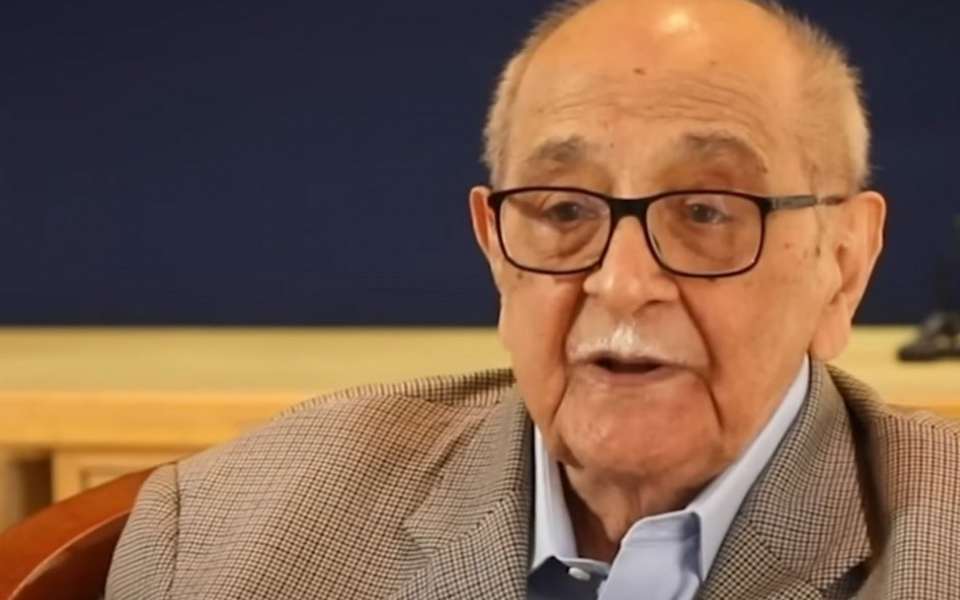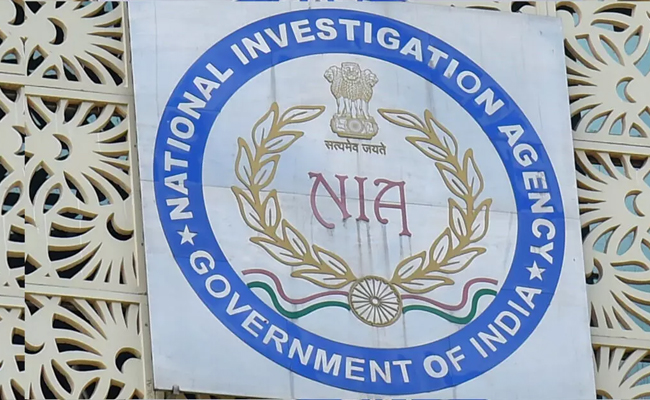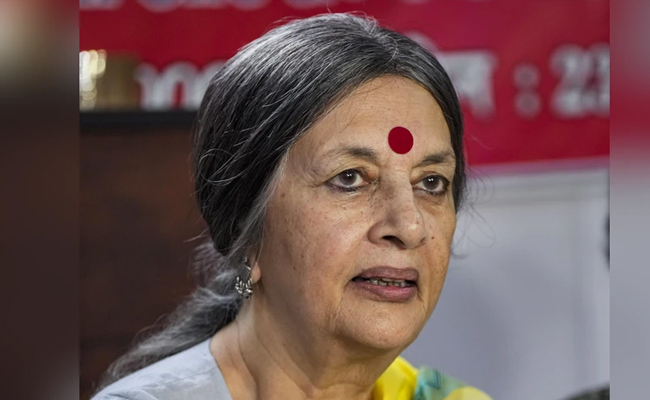New Delhi: Renowned lawyer and distinguished jurist Fali S. Nariman, Senior Advocate, passed away at the age of 95, leaving behind a legacy of upholding constitutional liberties, secular values, and judicial independence. His demise has led to an outpouring of heartfelt tributes from the legal fraternity, reflecting on his remarkable life and contributions.
Senior Advocate Kapil Sibal described Nariman as a "great son of India," highlighting his stature as not only the country's greatest lawyer but also as a fine human being who stood tall above all. Sibal expressed that the corridors of the court will never be the same without Nariman.
Fali Nariman
— Kapil Sibal (@KapilSibal) February 21, 2024
A great son of India passes away. Not just one of the greatest lawyers of our country but one of the finest human beings who stood like a colossus above all . The corridors of the court will never be the same without him.
May his soul rest in peace.
Senior Advocate Indira Jaising praised Nariman for shaping the history of constitutional law in India, noting his unwavering commitment to secular values and judicial independence.
Fali S Nariman Senior Advovate has passed on from this world . He was the last of a generation on lawyers from Bombay who shaped and moulded the history of constitutional law in India, a voice that stood by secular values, for the Independence of the judiciary. My deepest…
— Indira Jaising (@IJaising) February 21, 2024
Senior Advocate Dr. Abhishek Manu Singhvi hailed Nariman as "a living legend" who remained principled throughout his illustrious career, a trait shared by his son, Rohinton Nariman.
End of an era—#falinariman passes away, a living legend who wl forever be in hearts &minds of those in law &public life. Above all his diverse achievements, he stuck to his principles unwaveringly &called a spade a spade, a quality shared by his brilliant son #Rohinton.
— Abhishek Singhvi (@DrAMSinghvi) February 21, 2024
Senior Advocate Sanjay Hegde lamented Nariman's passing, stating that the Rule of Law has lost its greatest warrior.
The Rule of Law in India has lost its greatest warrior today. Go well Fali Sir. I have learnt so much from you and above all am grateful for your kindness. You will continue to inspire generations of men and women of law. Aavjo Saheb. Maliye.... pic.twitter.com/9t9flaMiw6
— SANJAY HEGDE (@sanjayuvacha) February 21, 2024
Advocate Prashant Bhushan shared a letter from Nariman congratulating him on the victory in the Electoral Bonds case. Nariman expressed hope that the Supreme Court's test of "manifest arbitrariness" used in that case might lead to striking down provisions like the "no-bail-for-now" provision in recently enacted laws.
Senior Advocate Mahesh Jethmalani mourned Nariman's loss, describing him as an inspirational and towering figure in the Indian Bar.
In the very sad demise of #FaliNariman, legal doyen, accomplished Parliamentarian and the very epitome of a true gentleman in all he did , the nation and the Indian Bar has lost an inspirational and towering personality. I shared some very special moments with him which I will…
— Mahesh Jethmalani (@JethmalaniM) February 21, 2024
Senior Advocate Sanjay Ghose urged the Bar to commit itself to the integrity and independence that Nariman epitomized.
Fali Sam Nariman, one the last of the legends of the Bar, passes away! The most fitting tribute the Bar can pay him is to commit itself to the standard of integrity and independence that FSN always measured up to!
— sanjoy ghose (@advsanjoy) February 21, 2024
R.I.P pic.twitter.com/XqSWOqDniC
Senior Advocate Menaka Guruswamy noted that the Constitution had lost one of its greatest defenders with Nariman's passing.
Mr. Fali Nariman veteran Senior Advocate, master practitioner of the craft of litigation, conscience-keeper of the bar, fearless and witty has passed away. The Constitution has lost of one of her greatest defenders. We at the bar have lost our leader. #falinariman
— Menaka Guruswamy (@MenakaGuruswamy) February 21, 2024
World Bank lawyer Vikram Raghavan praised Nariman's legal acumen and wit, stating that he illuminated every courtroom, column, and conversation with his intellect.
Fali Sam Nariman. Truly, the end of an era. He had a maestro’s talent for the law and letters. His sparkling intellect and unmatched wit illuminated every courtroom, column, and conversation. A monumental legacy left by a life richly lived. I hope he's sharing a celestial chuckle… pic.twitter.com/MqJmHoSPlo
— Vikram Raghavan (@vikramraghavan) February 21, 2024
Fali S. Nariman was known for arguing several landmark cases, including the NJAC verdict and the SC AoR Association case. He resigned as the Additional Solicitor General of India in June 1975 to protest against the declaration of emergency by the Indira Gandhi government.
A strong advocate of civil liberties and secularism, Nariman's opinions on judicial developments carried significant weight. His autobiography "Before Memory Fades" is a source of inspiration for law students and young lawyers.
Nariman was honoured with the Padma Bhushan (1991) and Padma Vibhushan (2007) by the Government of India. He served as a nominated member of the Rajya Sabha from 1999 to 2005.
Source : Live Law
Let the Truth be known. If you read VB and like VB, please be a VB Supporter and Help us deliver the Truth to one and all.
Mumbai (PTI): In view of Argentine superstar footballer Lionel Messi's visit to Mumbai on Sunday, the city police are implementing stringent security measures, like not allowing water bottles, metals, coins inside the stadiums and setting up watchtowers to keep an eye on the crowd, officials said.
The police also said taking extra care to avoid any stampede-like situation and to prevent recurrence of the chaotic situation that unfolded in Kolkata during Messi's visit on Saturday as thousands of fans protested inside the Salt Lake stadium here after failing to catch a clear glimpse of the football icon despite paying hefty sums for tickets.
Messi is expected to be present at the Cricket Club of India (Brabourne Stadium) in Mumbai on Sunday for a Padel GOAT Cup event followed by attending a celebrity football match. He is expected to proceed to the Wankhede Stadium for the GOAT India Tour main event around 5 pm.
"In view of Lionel Messi's visit to Mumbai, the police are geared up and have put in place a high level of security arrangements in and around the stadiums located in south Mumbai. Considering the chaos that prevailed in Kolkata and the security breach, we have deployed World Cup-level security arrangements at Brabourne and Wankhede stadiums," an official said.
Expecting heavy crowd near the stadiums during Messi's visit, the city police force has deployed more than 2,000 of its personnel near and around both the venues, he said.
As the Mumbai police have the experience of security 'bandobast' during the victory parade of ICC World Cup-winning Indian team and World Cup final match at the Wankhede Stadium, in which over one lakh cricket fans had gathered, we are prepared to handle a large crowd of fans, he said.
"We are trying to avoid the errors that occurred in the past," the official said.
There is no place to sneak inside the stadiums in Mumbai like the Kolkata stadium, according to him.
The police are also asking the organisers to provide all the required facilities to the fans inside the stadium, so that there will be no chaos, he said, adding the spectators have purchased tickets in the range of Rs 5,000 to 25,000. After paying so much of amount, any spectator expects proper services, while enjoying the event, he said.
The police are expecting 33,000 spectators at the Wankhede Stadium and over 4,000 at Brabourne Stadium. Besides this, more than 30,000 people are expected outside and around the stadiums just to have a glimpse of the football sensation, he said.
The organisers responsible for Messi's India visit recently came to Mumbai to discuss security arrangements. During the meeting, the Mumbai police asked them not to take the event lightly, according to the official.
After those requirements were fulfilled, the final security deployment was chalked out, he said.
Police has the standard procedure of the security arrangements inside the Wankhede Stadium, where people are barred from taking water bottles, metals objects, coins. Police are setting up watch towers near the stadiums and there will be traffic diversions, so that there is maximum space available to stand, according to the official.
Police are also appealing to the spectators to use public transport service for commuting and avoid personal vehicles to reach south Mumbai.
To avoid any stampede-like situation, police are also taking precautionary measures and will stop the fans some distance ahead of the stadium and public announcement systems will be used to guide the crowd. Barricades will be placed at various places to manage the crowd.
In case the crowd swells up beyond expectation, the police will divert people to other grounds and preparations in this regard underway, he said.
Additional police force has been deployed in south Mumbai to tackle any kind of situation, he said.





